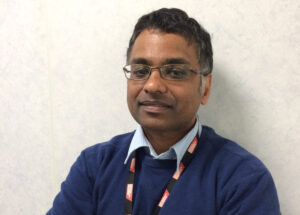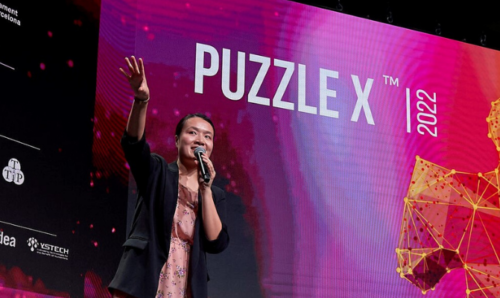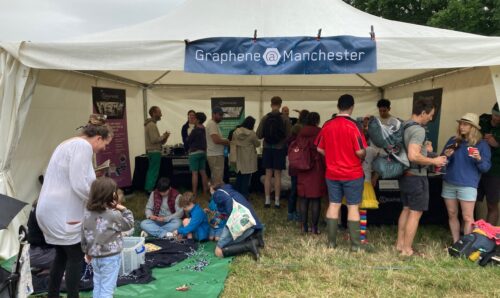What is it like to be a Tier 1 partner in the Graphene Engineering Innovation Centre?
Collaborations Graphene Engineering Innovation Centre 21 February 2019
The Graphene Engineering Innovation Centre (GEIC) officially opened its doors in December 2018. The facility is the second building focused on graphene research and development at The University of Manchester.
The GEIC focuses on industry-led application development in partnership with academics. It will fill a critical gap in the graphene and 2D materials ecosystem by providing facilities which focus on pilot production, characterisation, together with application development in composites, energy, solution formulations and coatings, electronics and membranes.

We spoke to Paul Ladislaus, Senior Process Engineer at First Graphene (UK) Ltd– one of the first companies to sign as a Tier 1 partner within the GEIC to see how he’s settling in to life in Manchester.
First Graphene (UK) Ltd is a leader in the bulk manufacture of high-quality graphene products using their proprietary electrochemical exfoliation process. The company is making excellent progress with target customers and recently received an order for tonnage quantities of its PureGRAPH™ graphene, confirming its position as a world-leading producer.
Paul’s role is to develop, design and build new processes for the manufacture of advanced graphene products and formulations. First Graphene are now in the process of setting up their lab within the GEIC. They will be working on a range of projects, including composites, structural materials and energy storage. They are already seeing exciting and promising results. “We want to maintain our leadership in novel manufacturing processes and extend our application knowledge for graphene materials. We are already finding areas where our PureGRAPH™ products are adding value.”
Paul is a Chartered Chemical Engineer who joined First Graphene in November 2018. He has almost 20 years’ experience in the process industry, starting on Teesside with a large, international titanium dioxide producer. He has spent over 5 years working on carbon nanotube and graphene production and has experience of scaling up and developing novel processes.
Paul cites one of First Graphene’s main reasons for coming to the GEIC is the University’s global reputation in graphene and 2D materials research: “The University of Manchester was highly recommended as the place for graphene research. We wanted to partner with the University to open up new opportunities.”
Having their own laboratory space in the building and a central, modern location to meet prospective customers are also advantages of the partnership with the GEIC. “Being based in the UK also gives us access to many markets and we can reach out to people across the globe.”
Graphene was first isolated in 2004 by Professors Andre Geim and Kostya Novoselov at The University of Manchester. They subsequently won the Nobel Prize in Physics in 2010. Now the University has more than 300 people working on graphene across 30 academic groups and has two national facilities: the GEIC and the National Graphene Institute.
First impressions of the GEIC are positive: Paul talks about how welcoming, enthusiastic and engaging the team have been.
But it is not only the tangible benefits such as the facilities and capabilities, its location in the centre of Manchester or its transport links, but the intangible benefits too. “Working with experts in the field is extremely valuable and helps us to develop our knowledge quickly. Being part of he GEIC also gives the company the opportunity to introduce world-class technologies from across the world.”
First Graphene will be hosting a seminar at the National Graphene Institute on Thursday 28th February where Professor Colin Raston FRACI CChem FRSC from Flinders University, Australia will be giving a talk on Vortex Fluidic mediated processing under flow. For more information and to register for this event please contact Paul Ladislaus at paul.ladislaus@firstgraphene.com.au




